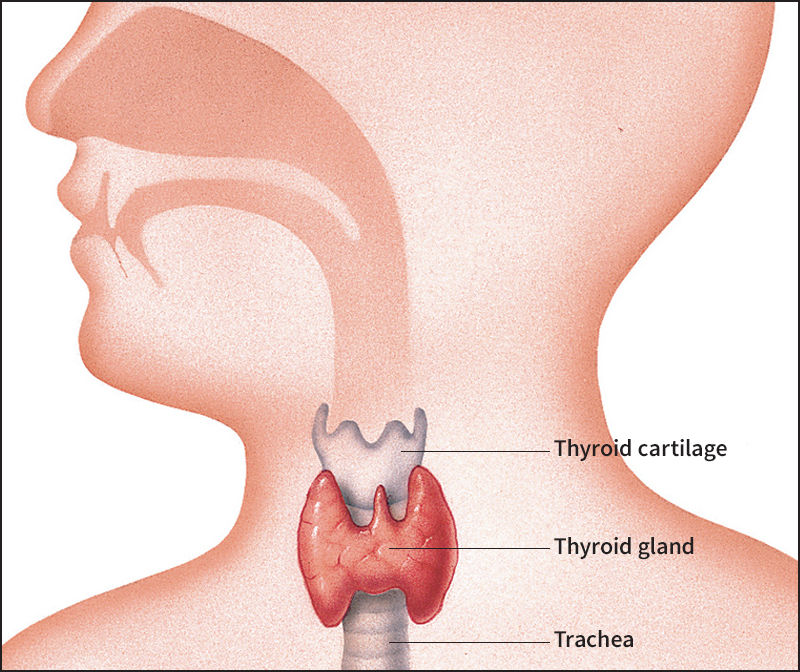Thyroid cancer is the uncontrolled growth of abnormal cells in the thyroid gland . The thyroid gland is an important organ in the front of the neck. It produces thyroid hormone , a substance important in many bodily functions. Thyroid cancer is relatively rare. It affects women more commonly than men. There are several different types of thyroid cancer. They range from those that can be easily controlled to some that require intensive treatments. Some forms are inherited. They may be associated with other cancers and tumors .

People exposed to radiation have a higher risk of developing thyroid cancer. This radiation may come from radioisotopes of iodine . Radioisotopes are radioactive forms of a chemical element. Radioisotopes of iodine may be found in nuclear fallout , material released by a nuclear disaster or explosion. Iodine radioisotopes are also used in medical and industrial processes. Because the thyroid takes up iodine, the gland accumulates this radioactive substance. Over time, the associated radiation may cause cancer. Children who received radiation treatment for conditions of the chest or neck, such as swollen tonsils , also have a higher risk of thyroid cancer. Individuals who received radiation therapy to treat Hodgkin’s disease also have an increased incidence of thyroid abnormalities, including cancer. Health care professionals recommend lifelong follow-up care to assess thyroid health in such individuals.
Symptoms of thyroid cancer include a lump in the neck, hoarseness, or difficulty breathing or swallowing. However, symptoms may be minor or absent. Thyroid cancer is often detected during a medical examination done for other reasons.
Thyroid hormone helps regulate the body’s metabolism and energy level. An overactive thyroid can lead to hyperactivity and an irregular heart rhythm . An underactive thyroid may cause fatigue and sluggishness. Cancer affecting the thyroid can cause these changes.
Thyroid cancer is typically treated by surgical removal of all or part of the thyroid gland, along with the use of radioactive iodine. The iodine is taken up by the thyroid gland and destroys the cells. The thyroid gland is located near the nerves that control the larynx (voice box). Patients who undergo surgery for thyroid cancer may be left with hoarseness or other changes in voice . Surgery can also damage the nearby parathyroid glands . Such damage may alter the body’s use of calcium , which is controlled by these glands. Several new drugs target specific genetic alterations that occur in inherited forms of thyroid cancer. Most cases of thyroid cancer can be cured. However, most patients must take daily doses of thyroid hormone for the remainder of their lives.
See also Cancer ; Parathyroid gland ; Thyroid gland .
